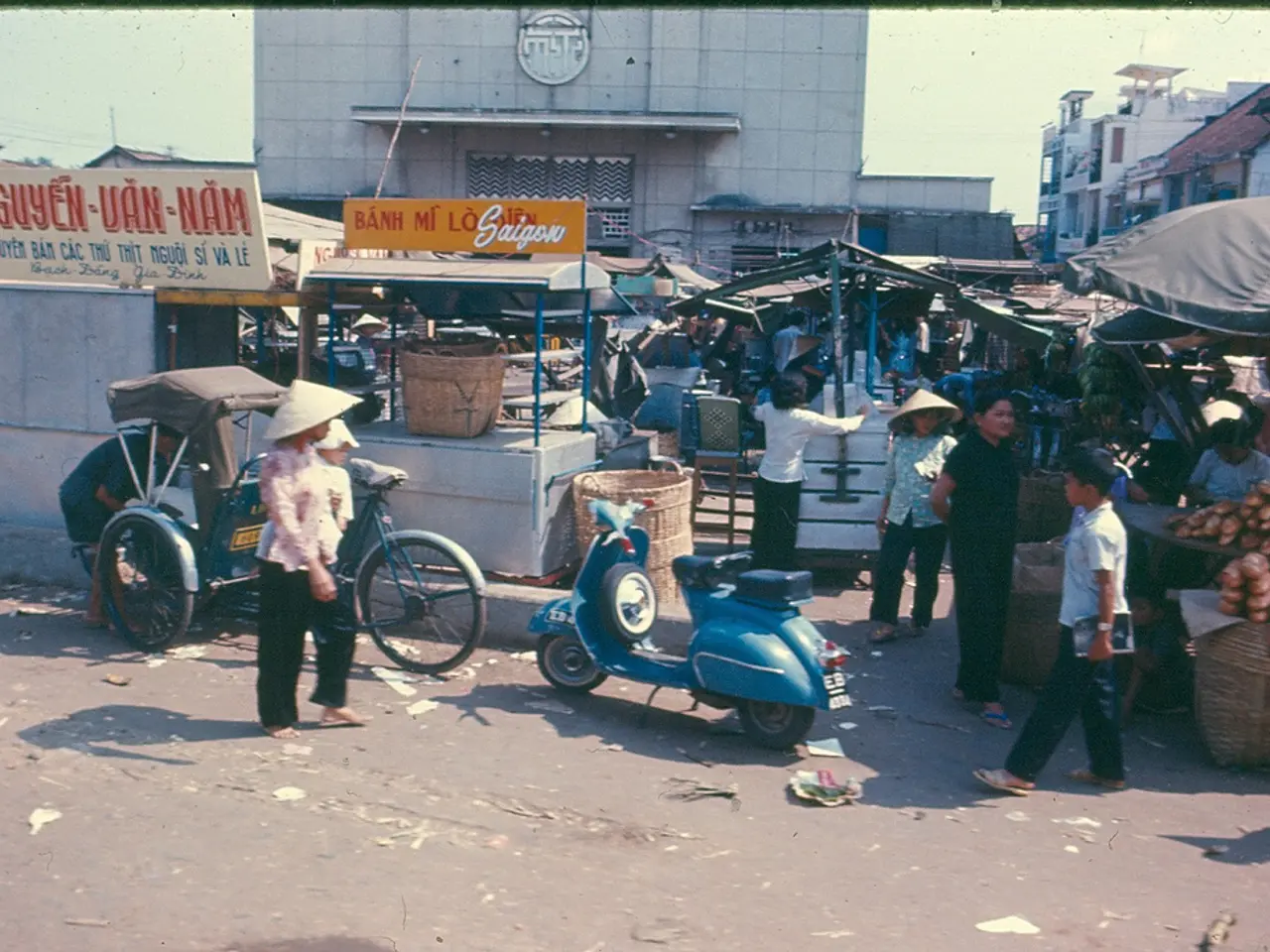Indian Prime Minister Modi Acclaims Swachh Bharat Mission as Emblem of National Unity in the 124th Mann Ki Baat Broadcast
The Swachh Bharat Mission (SBM), approaching its eleventh anniversary, continues to be a shining example of teamwork and creativity as it transforms India into a cleaner, greener nation. The mission, under the leadership of Prime Minister Narendra Modi, emphasizes the importance of maintaining cleanliness as an ongoing dedication rather than a one-time effort.
The SBM empowers women and fosters public involvement, working tirelessly to promote sustainable practices across the country. In his recent Mann Ki Baat address, PM Modi reminded us that maintaining cleanliness is a shared responsibility, bringing India together in the fight for a better, cleaner future.
Under the SBM, specific sustainable solutions and regional initiatives have been implemented, particularly under its Urban (SBM-U) and Rural (SBM-G) components. These initiatives focus on sanitation, solid waste management, and behavioral change.
One of the key sustainable solutions is the Scientific Municipal Solid Waste Management (MSWM). SBM-U aims for 100% scientific management of municipal solid waste across statutory towns, promoting source segregation, the 3Rs principle (reduce, reuse, recycle), and scientific processing of waste. This includes remediation of legacy dumpsites and easing urban transformation.
The Open Defecation Free (ODF) and Safe Sanitation Goals have also been a significant part of the SBM's success. Since 2014, over 10 crore toilets were built, leading to India declaring itself ODF in 2019. SBM-U 2.0 sets targets to make cities 'Garbage Free', manage grey and black water, and focus on urban local bodies achieving ODF+ and ODF++ statuses for comprehensive sanitation coverage.
The annual Swachh Survekshan ranking initiative encourages cities like Indore, Surat, and Navi Mumbai to adopt innovative sanitation and waste management practices combined with strong municipal leadership and citizen participation. It has evolved to incorporate sustainability assessments aligned with UN SDG 6, including wastewater treatment and reuse via the Water+ certification.
The Lighthouse Initiative (LHI), a participatory and inclusive sanitation program under SBM-G, has been instrumental in rural sanitation. Implemented through PPP in 75 Gram Panchayats across 15 states, it supports solid and liquid waste management by mobilizing village communities, local governments, corporates, and administration to ensure joint ownership and accountability.
India has also made significant strides in plastic waste reduction efforts. The nationwide ban on specific single-use plastics (since 2022) and the introduction of Extended Producer Responsibility (EPR) regulations have been key in this fight. Cities such as Indore and Ambikapur have become models of decentralized waste management systems, incorporating community-led clean-ups and material recovery facilities.
The efforts of teams like the Lucknow Gomti River team, who have been cleaning the river every Sunday for ten years, are commendable. The prime minister himself has acknowledged their hard work, as he has with the cities that are leading by example in areas such as water management in Karad and Vijayawada, and riverfront cleanups in Ahmedabad.
As the Swachh Bharat Mission continues to evolve, it remains a beacon of hope for a cleaner, greener India. The mission's integrated sustainable sanitation and waste management solutions, adapted regionally, are improving urban and rural sanitation, behaviour change, and environmental sustainability.
References:
- SBM Urban focus on scientific waste management and ODF cities [1][2]
- Swachh Survekshan rankings and sustainability focus [3]
- Lighthouse Initiative in rural sanitation [2][5]
- Plastic ban and decentralized waste models, e.g., Indore, Ambikapur [4]
[1] Ministry of Housing and Urban Affairs. (n.d.). Swachh Bharat Mission - Urban. Retrieved from https://pib.gov.in/swachhbharatmissionurban/
[2] Ministry of Jal Shakti. (n.d.). Swachh Bharat Mission Gramin. Retrieved from https://pib.gov.in/swachhbharat/
[3] Swachh Survekshan. (n.d.). Retrieved from https://swachhsurvekshan.gov.in/
[4] The Hindu. (2022, January 21). Cities lead the way in waste management. Retrieved from https://www.thehindu.com/sci-tech/energy-and-environment/cities-lead-the-way-in-waste-management/article30291320.ece
[5] The Lighthouse Initiative. (n.d.). Retrieved from https://swachhbharat.gov.in/lighthouse-initiative/
- The Swachh Bharat Mission (SBM) encourages sustainable practices across the country, specifically focusing on sanitation, solid waste management, and behavioral change.
- SBM-U aims for 100% scientific management of municipal solid waste, promoting source segregation and the 3Rs principle (reduce, reuse, recycle).
- The Open Defecation Free (ODF) and Safe Sanitation Goals have been a significant part of SBM's success, leading to India declaring itself ODF in 2019.
- The Swachh Survekshan ranking initiative encourages cities to adopt innovative sanitation and waste management practices, incorporating sustainability assessments aligned with UN SDG 6.
- The Lighthouse Initiative, a rural sanitation program under SBM-G, has been instrumental in rural sanitation, supporting solid and liquid waste management through participatory and inclusive strategies.
- India has made significant strides in plastic waste reduction efforts, with a nationwide ban on specific single-use plastics (since 2022) and the introduction of Extended Producer Responsibility (EPR) regulations, making cities such as Indore and Ambikapur models of decentralized waste management systems.




